Ekstrakurikulab : Collective as School
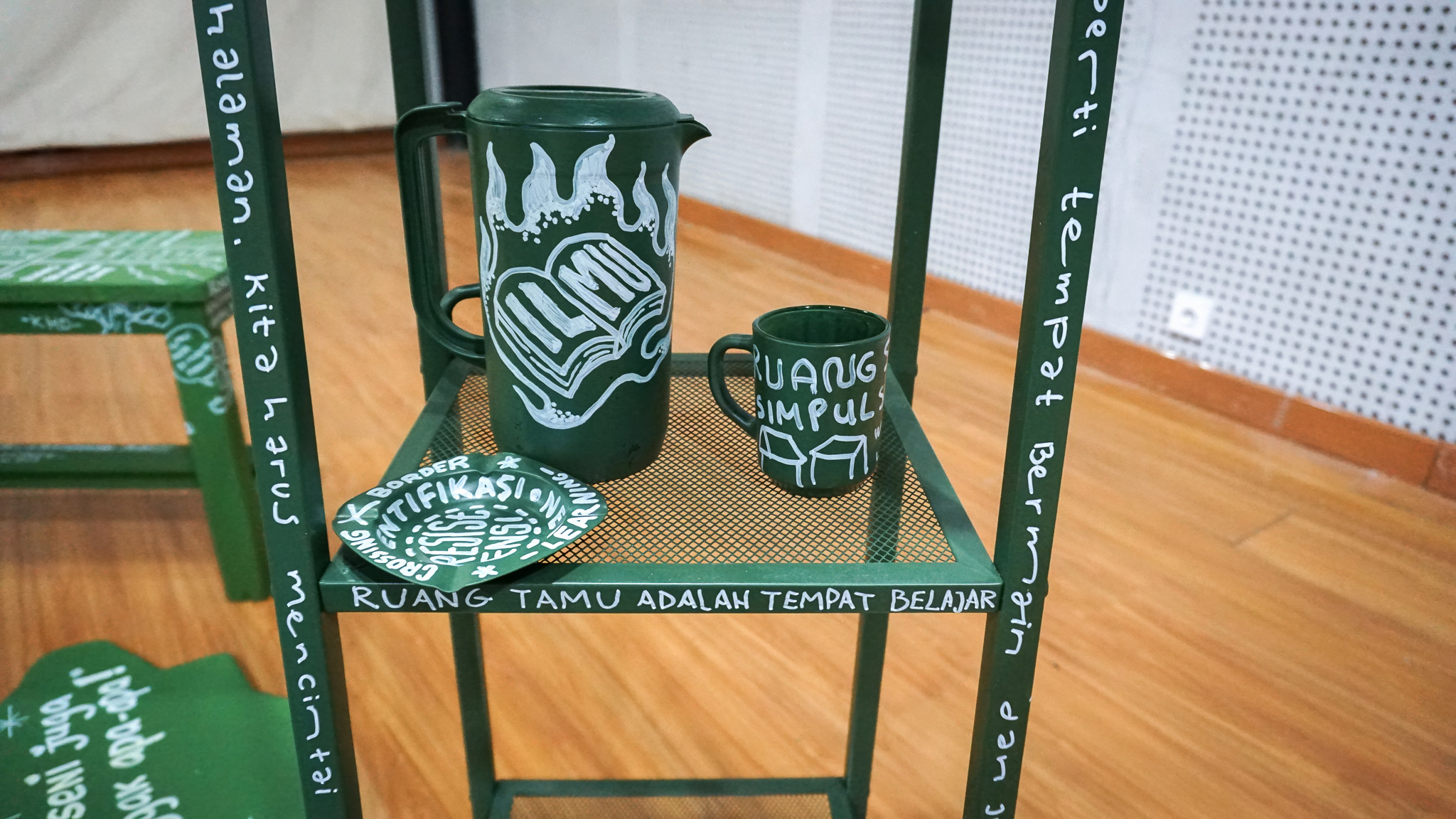
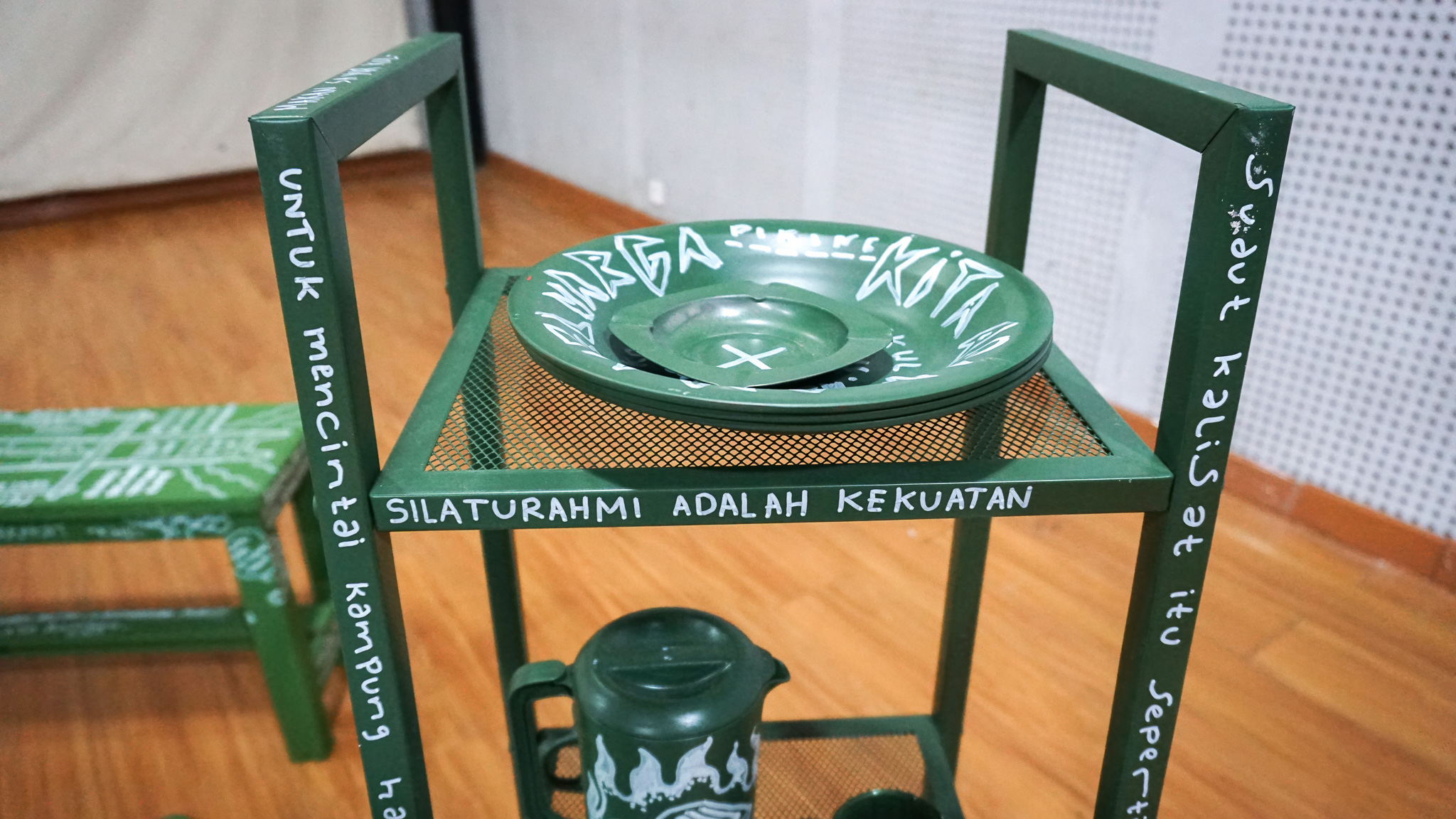
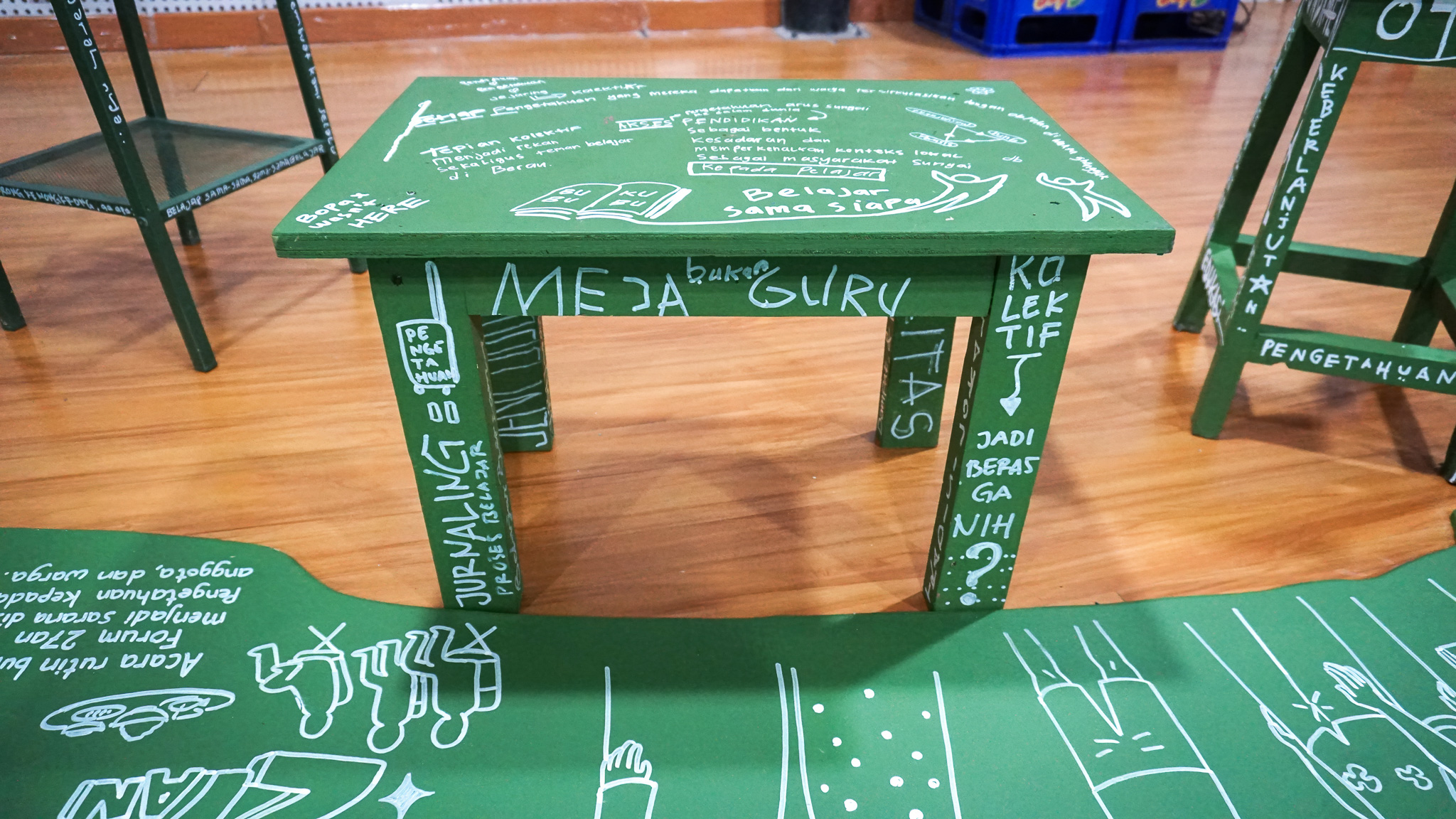
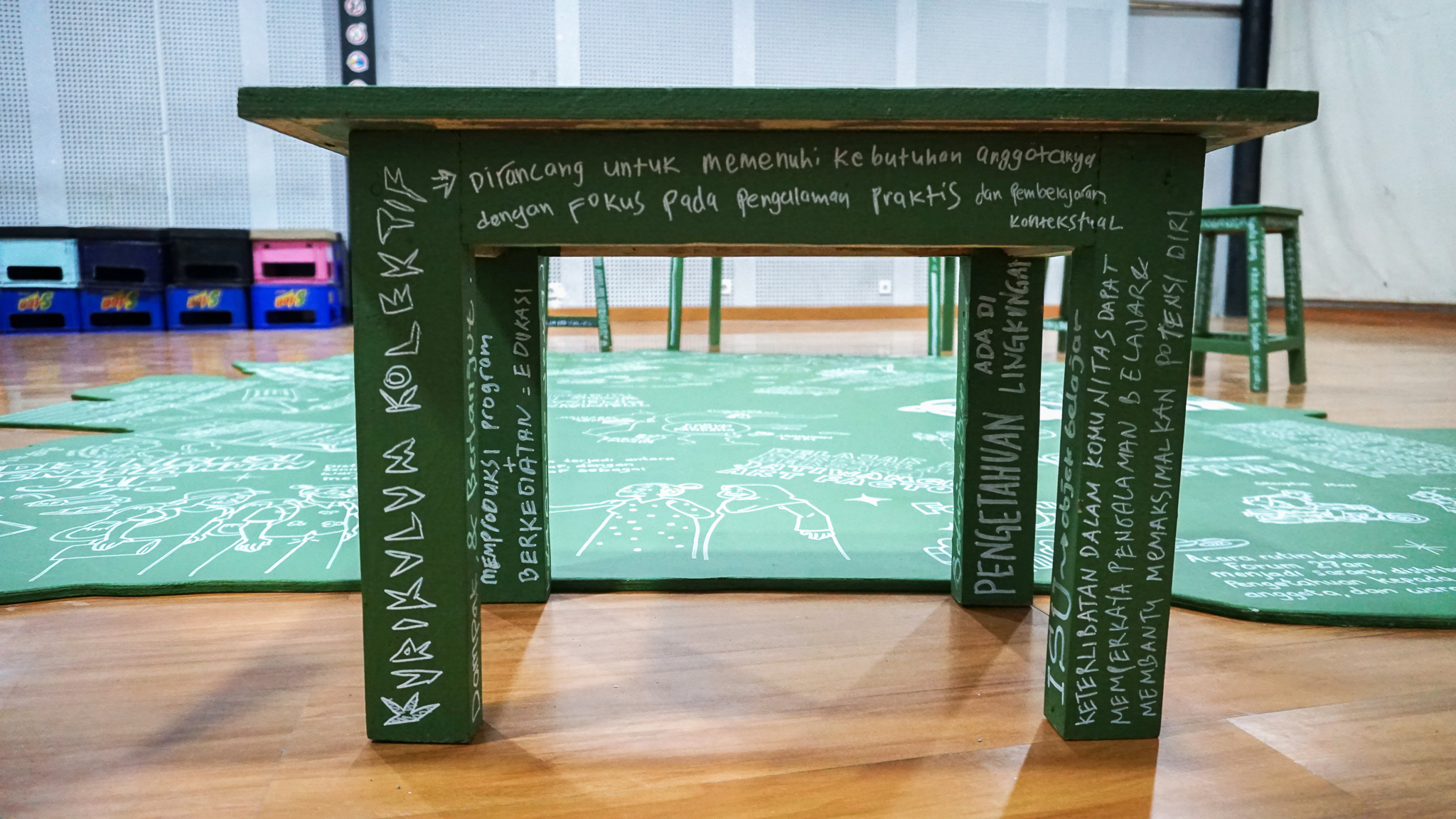
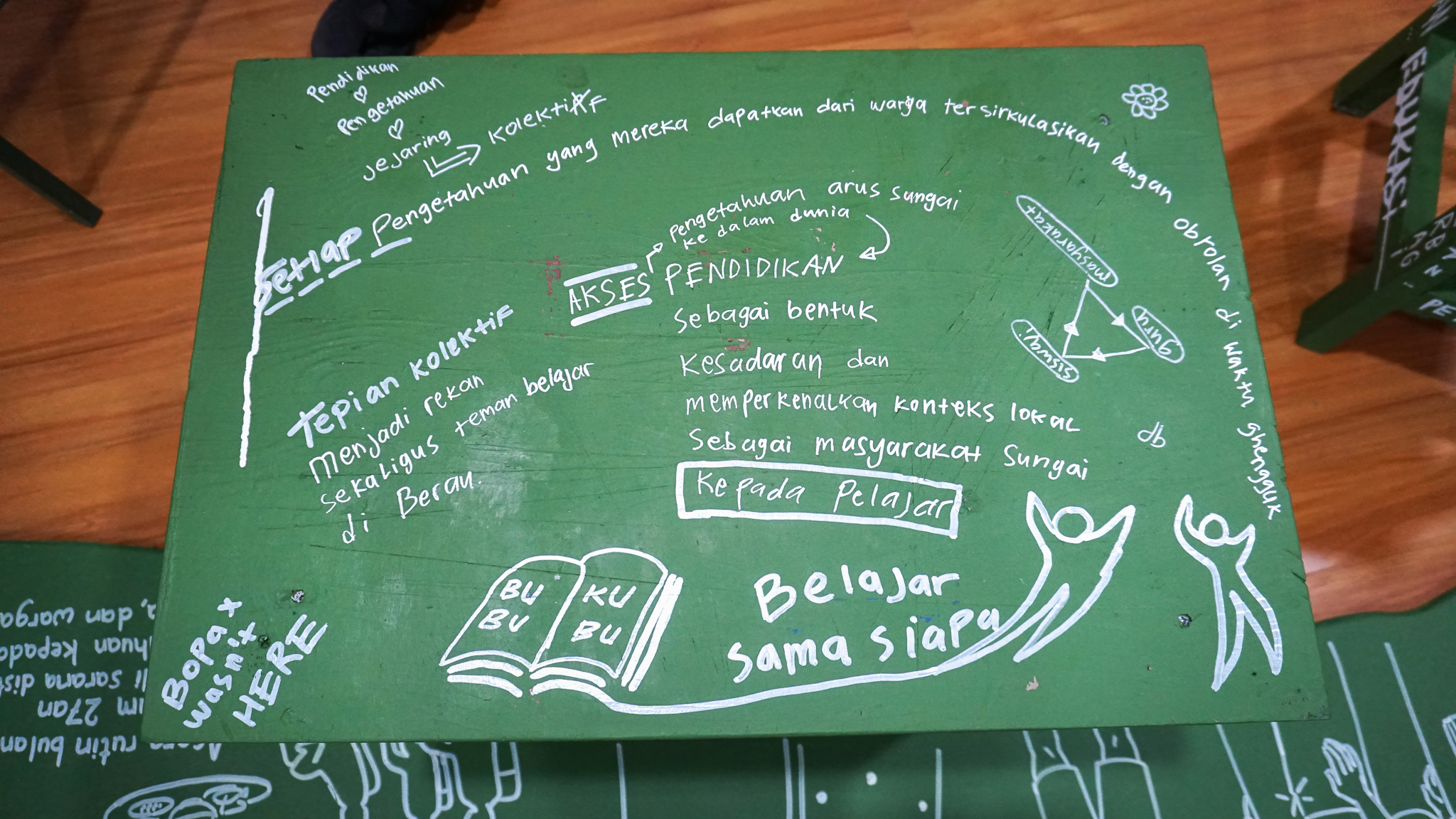
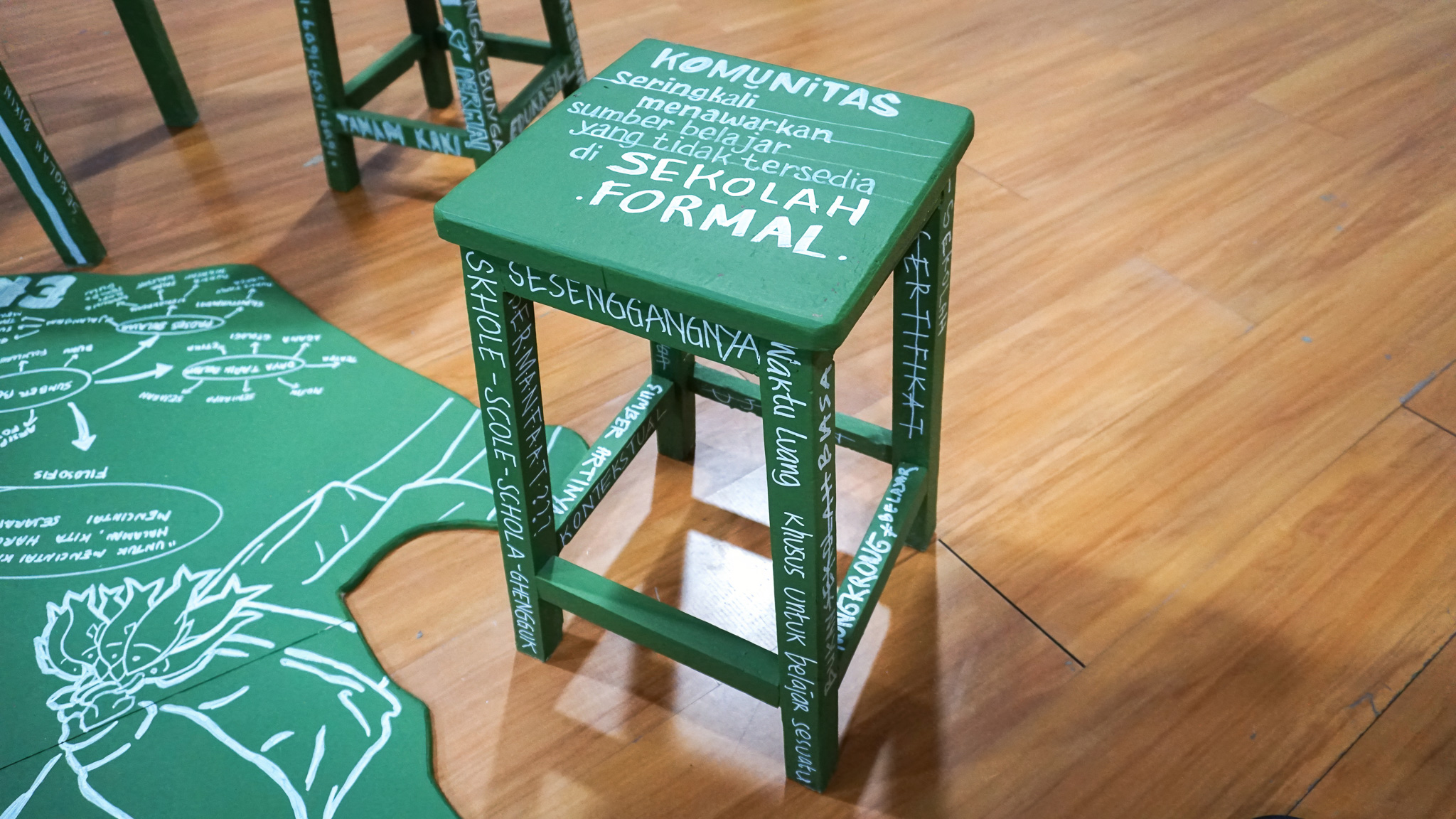
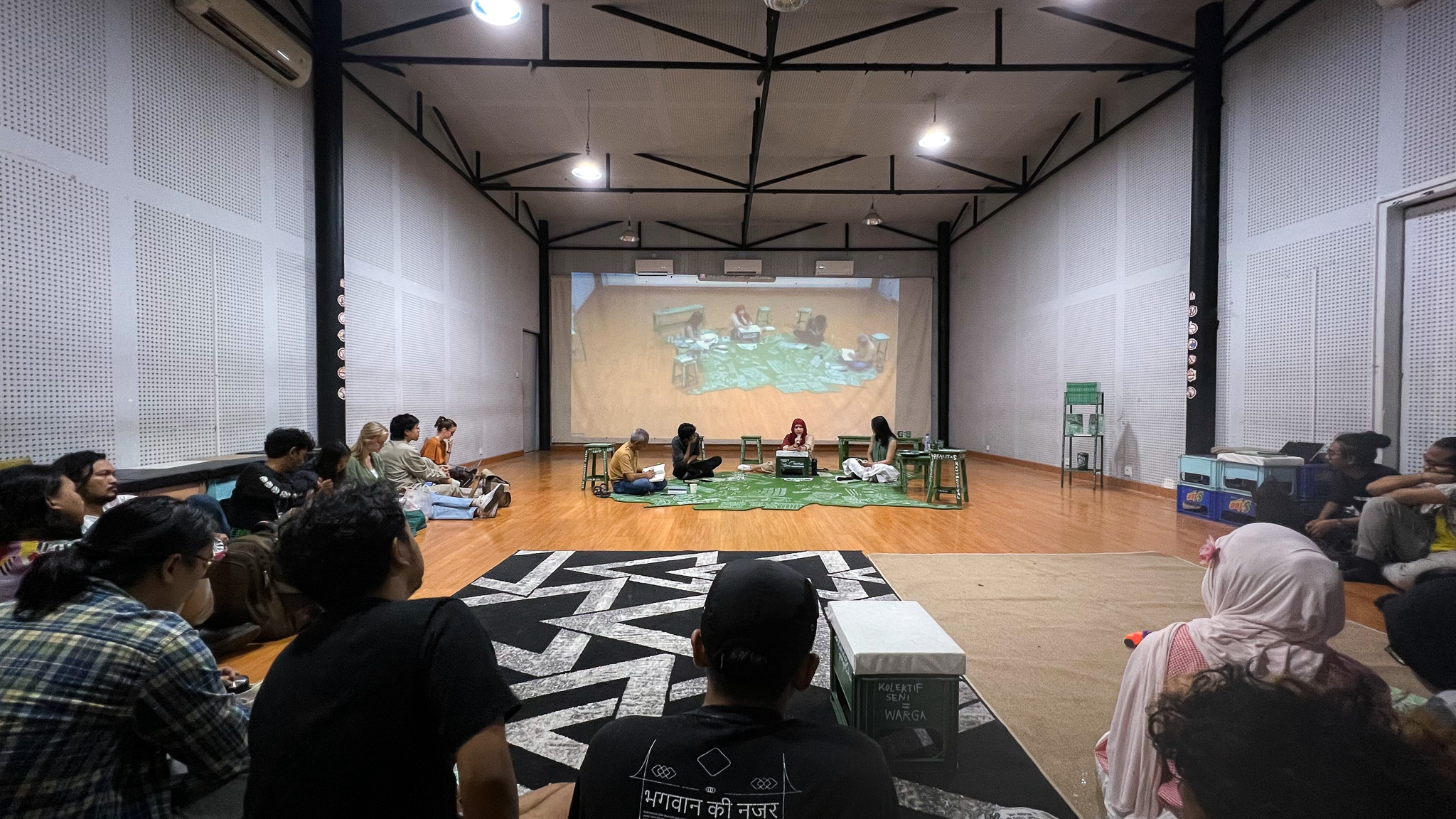
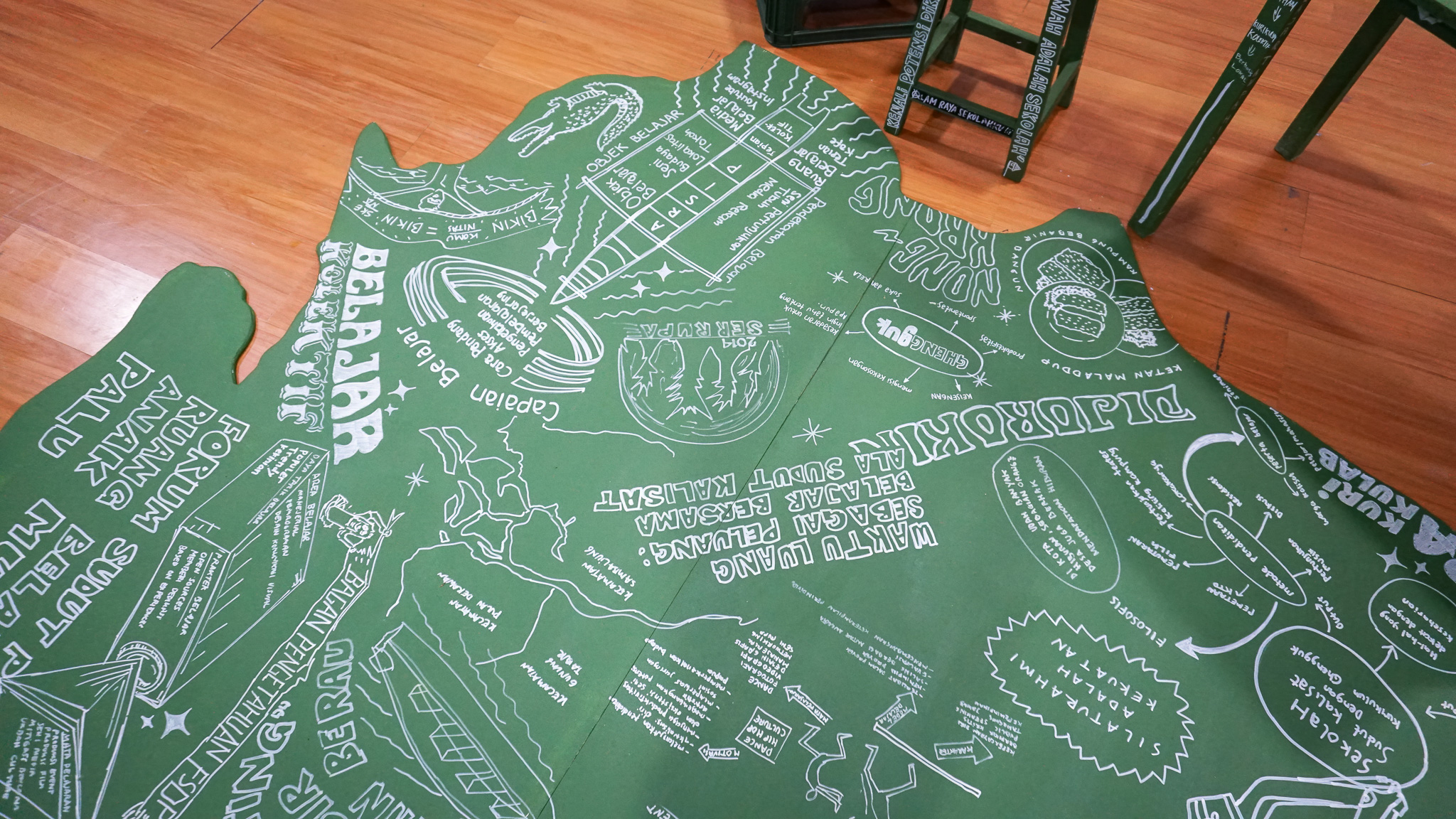
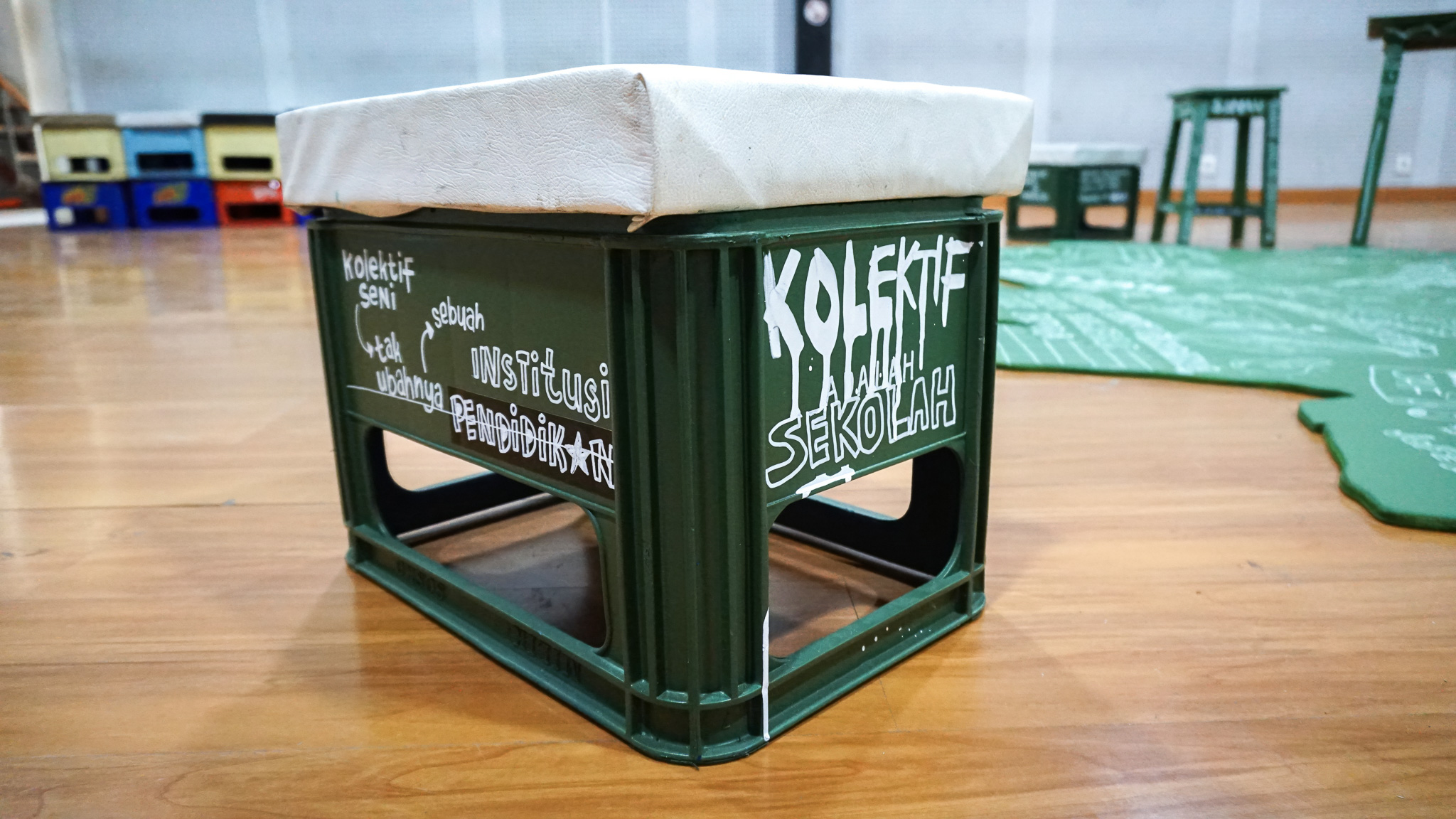
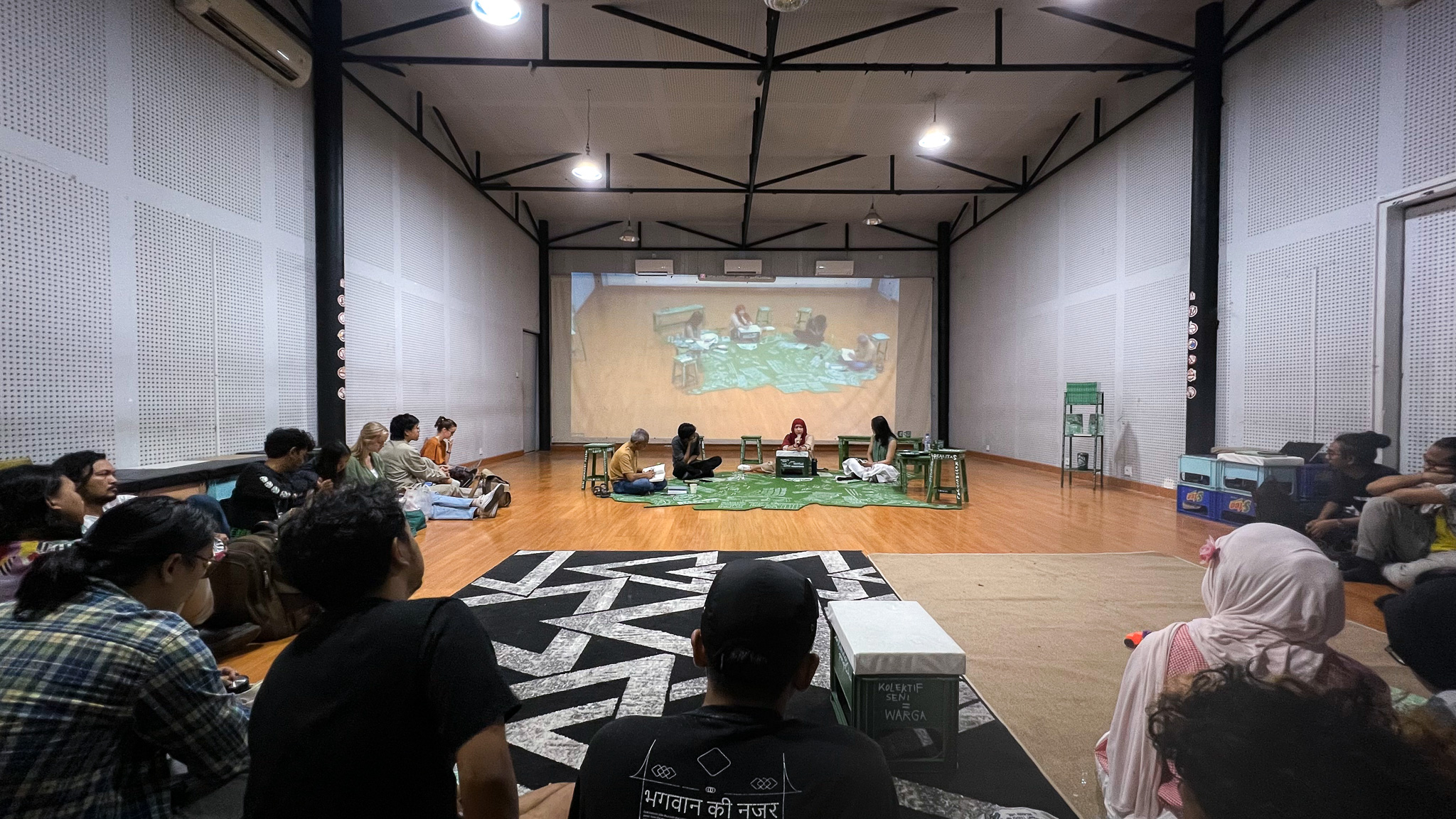
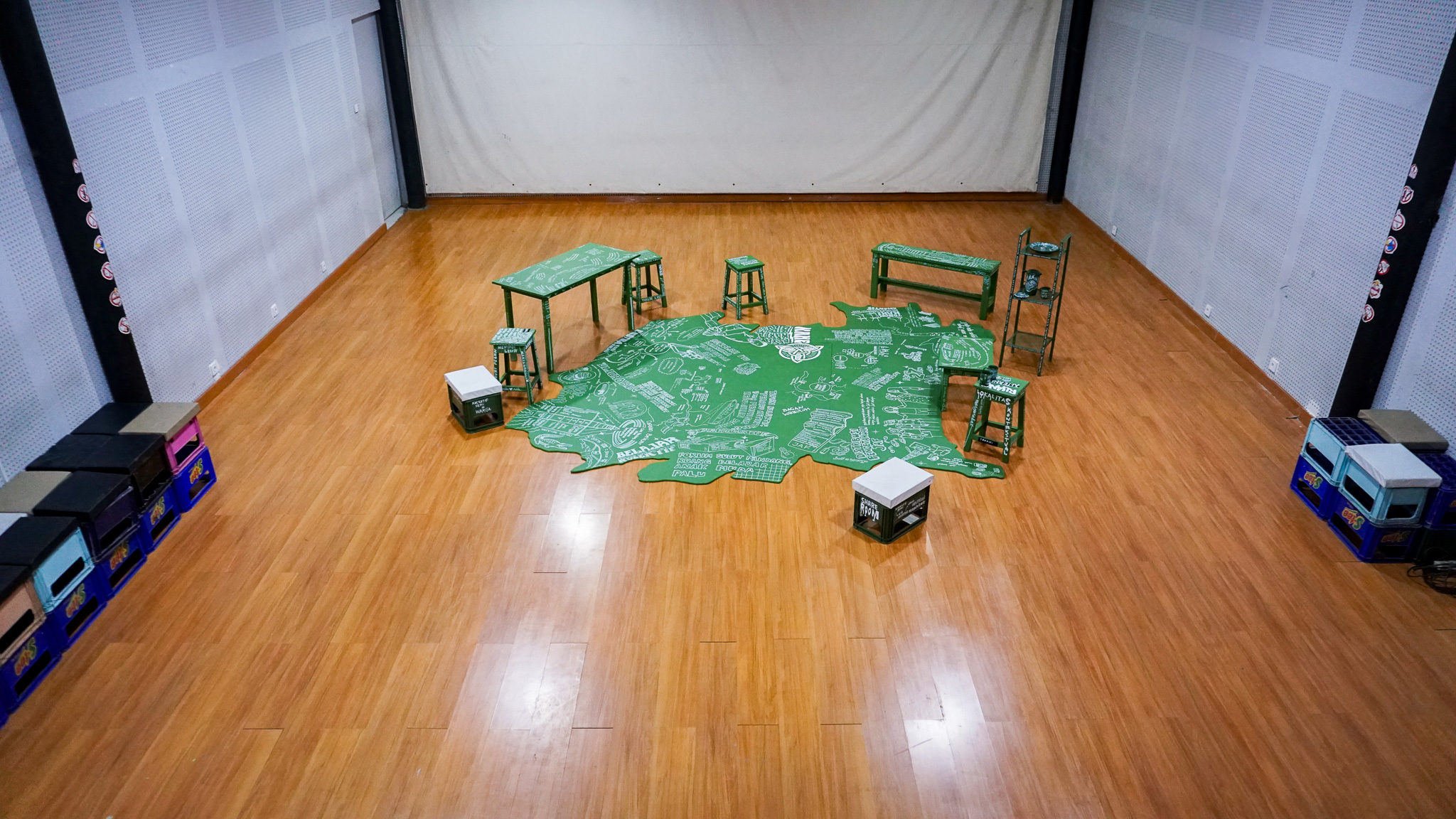
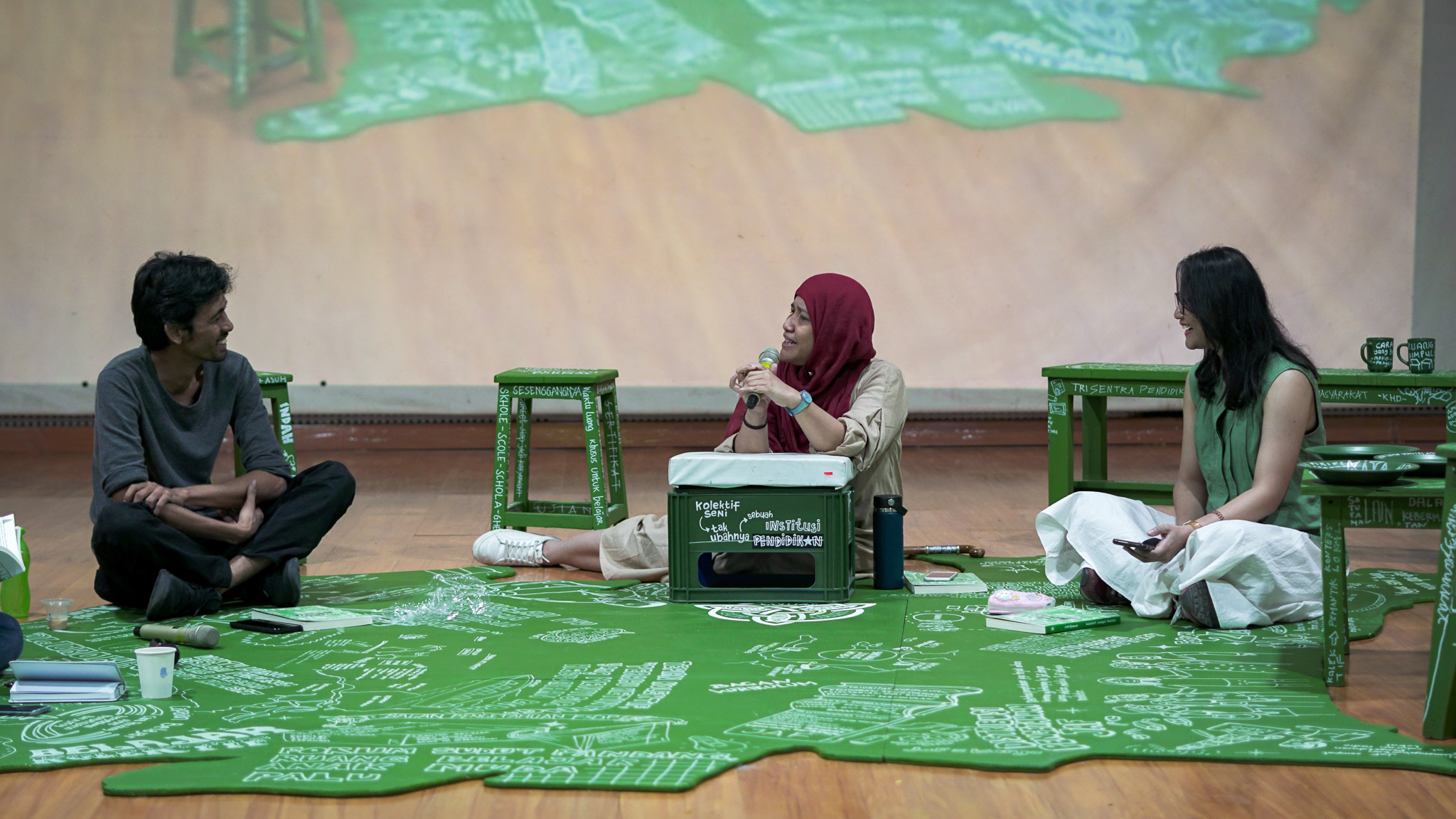
In the 21st century, collective work in art has become a significant trend. Artist collectives and alternative spaces initiate various collaborative programs with a wide audience, not only to produce artistic works but also to fulfill a strong social function through public awareness-based art programs. These programs include exhibitions, workshops, festivals, discussions, publications, research, and film screenings. Through educational and pedagogical approaches, collective art serves as a medium for disseminating knowledge, making it a form of knowledge production.
The Context of Education and Collective Art in Indonesia
In Indonesia, art has yet to become an integral part of primary education, leaving a gap in the learning process for students to understand the world. This gap is addressed by collective art practices, which use pedagogical approaches as a learning medium. Artist collectives leverage art to enhance literacy and build the capacity of their target communities. Some collectives have even experimented with creating schools as an artistic practice, whether through workshops, classes, or other pedagogical methods. Beyond impacting broader audiences, this approach also plays a role in regenerating members within the collective.
For its members, artist collectives become a space for sharing and acquiring knowledge. Thus, the collective functions as a “school” for its members and the wider community. Serrum, as a visual arts study community, responds to this educational context by positioning education as a central issue, aligning with the background of most of its members, who are graduates of the former IKIP Jakarta (Institute of Teacher Training and Education).
Ekstrakurikulab: Filling the Gaps in the Education System
Serrum’s Ekstrakurikulab project, a combination of the words extracurricular and laboratory, aims to create alternative solutions to the stagnation in the national education system. This project seeks to exploit the potential within the gaps of the existing system while also presenting new ideas that can only be implemented outside the formal system.
One of the main activities of Ekstrakurikulab is research and Focus Group Discussions (FGD) with artist collectives. These discussions explore knowledge modules implemented in pedagogy-based art programs across various regions in Indonesia. By integrating social and cultural contexts, the laboratory aims to discover innovative methods for disseminating local knowledge.
Research Output: Ekstrakurikulab Book and Website
Based on the research findings, Serrum will produce a book and website titled Ekstrakurikulab. This publication documents the modes of production and distribution of local knowledge applied by various artist collectives and art communities in Indonesia. Through this book and website, Serrum hopes to enrich the discourse on alternative education based on art and to broaden the impact of collective work in the fields of art and education.
Lorem ipsum dolor sit amet, consectetur adipiscing elit. Ut elit tellus, luctus nec ullamcorper mattis, pulvinar dapibus leo.
